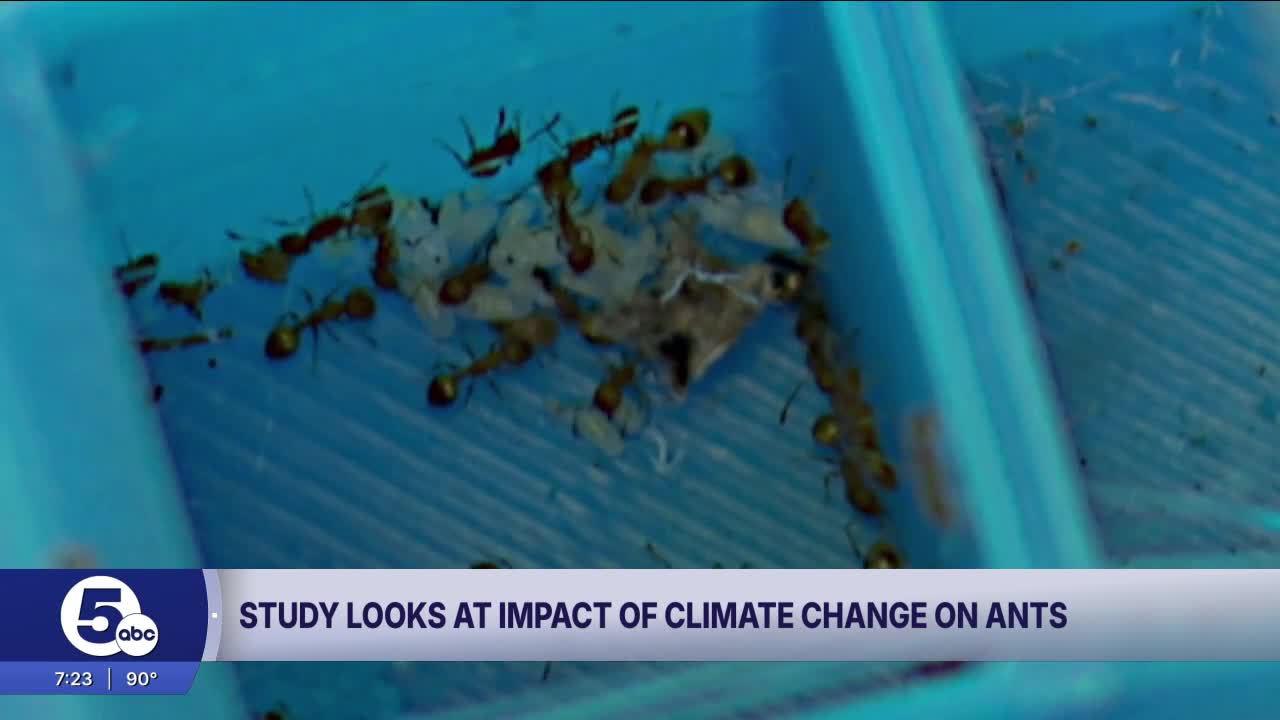AKRON, Ohio — At the University of Akron Field Station located within the Bath Nature Preserve, Dr. Chelsea Miller, an assistant biology professor, joined students to hunt for ants in acorns, hickory nuts and other spots.
"Even looking under these big logs," Miller explained to a News 5 crew.
Over the last few months, they've collected thousands of the tiny insects from 43 colonies.
At times, Miller said looking for an ant in an acorn is similar to looking for a needle in a haystack.
"It's totally like that, so there's hundreds—thousands probably— of cast-off hickories under this giant tree," Miller said.
The ants—mostly known as acorn ants—will be studied in a lab to see how they respond to climate change.
Miller believes ants in Northeast Ohio have already been affected by climate change in their natural environments in recent years.
"Mostly what we're seeing is our winters are becoming warmer, wetter and more variable," Miller said. "Now, we're seeing a freeze thaw, freeze thaw, freeze thaw, and so every time it thaws the ants are brought out of that dormancy and that causes physiological stress."
The research led by Dr. Miller and Dr. Richard Loundraville will really get moving in the fall.
A digital control device will be placed in a warming chamber. One side of the chamber will be three degrees warmer than the other side. The ants will be split up on each side. The professors and students will then monitor their behavior over the winter.
Ryan Ataya, a sophomore from Copley, has helped with the collection of the ants.
"They're just cool and it's very interesting how they work as like a massive organism even though they're a bunch of little pieces," Ataya said.
Part of the study will focus on if, and how, climate change stresses the ants.
"I feel like it's very important to see nature's adaptations to climate change," Ataya said.
Miller believes that whatever is learned could potentially be tied into medical research that looks at whether climate change is affecting disease rates in humans.
"At the end of the day, these molecular responses that we might be seeing in something like ants can be in some way translated, or applied to our understanding of how environmental changes are impacting humans," Miller said.
The team will continue to search for more ants for the project, believing that something so small could lead to big findings related to climate change.
Miller added that ants respond very quickly to environmental change and have a very important ecological role.
"They're present on almost all continents across the globe and they perform things like nutrient cycling, decomposition, lots of them are predators, lots of them are important prey items, and they also engage in really interesting mutualism with other organisms."





